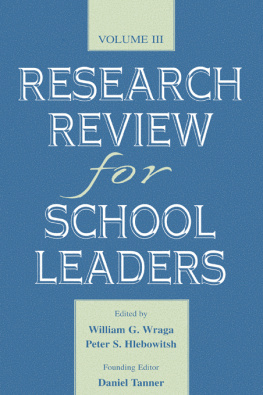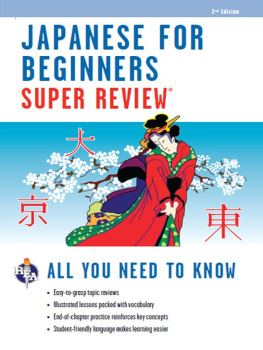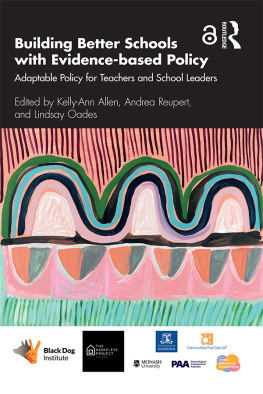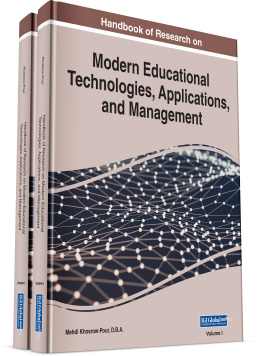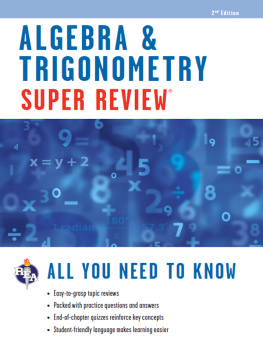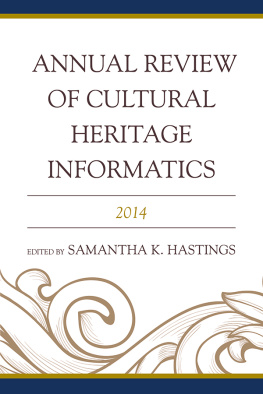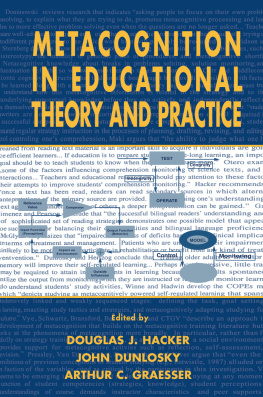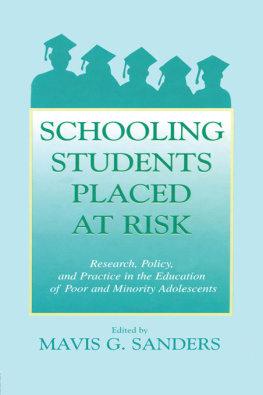Research Review
for
School Leaders
Volume III
EDITORIAL BOARD
Charlene E. Carper, Assistant Principal, McKelvie Middle School, Bedford, New Hampshire
Raymond Cooper, Principal, Tenino High School, Tenino, Washington
Linda Fox, Principal, Elizabeth High School, Elizabeth, Colorado
Geneva Gay, Professor of Education, University of Washington
James J. Hayden, Principal, Freehold Township High School, Freehold, New Jersey
LeRoy Hoehner, Principal, McCook Junior-Senior High School, McCook, Nebraska
Ann Lieberman, Codirector, National Center for Restructuring Education, Schools, and Teaching, Columbia University
Laurel N. Tanner, Senior Professor of Education, Temple University
Research Review
for
School Leaders
Volume III
Co-sponsored by the National Association of Secondary School Principals and the National Association of Elementary School Principals
Edited by
William G. Wraga
University of Georgia
Peter S. Hlebowitsh
University of Iowa
Founding Editor
Daniel Tanner
Rutgers University

Copyright 2000 by Lawrence Erlbaum Associates, Inc.
All rights reserved. No part of this book may be reproduced in any form, by photostat, microfilm, retrieval system, or any other means, without prior written permission of the publisher.
Lawrence Erlbaum Associates, Inc., Publishers
10 Industrial Avenue
Mahwah, NJ 07430
Cover design by Kathryn Houghtaling Lacey
ISBN 0-8058-3508-3 (cloth : alk. paper)
ISSN 1528-8498
Books published by Lawrence Erlbaum Associates are printed on acid-free paper, and their bindings are chosen for strength and durability.
Printed in the United States of America
10 9 8 7 6 5 4 3 2 1
To Lloyd Campbell Chilton
CONTENTS
FOREWORD
Daniel Tanner, Founding Editor
Rutgers University
There is a story behind every new idea or venture. The idea for this project grew out of an expressed need. Through the course of my 10-year tenure as a founding member of the Curriculum Council of the National Association of Secondary School Principals, I had the privilege of meeting on a regular basis with members of the associations Curriculum Committee, composed of school leaders from throughout the nation. Most impressively, the school leaders did not use our forums to vent their frustrations. Instead they addressed common concerns and shared ideas in the most constructive ways. To my mind, this was all the more impressive when considering how school leaders have been subjected to incessantly shifting external pressures from the mass media, political opportunists, special-interest groups, and local factions with regard to education priorities and practices. The slogan of reform has been shouted from the rooftops by opposing sides of educational issues as though reform itself is a solution to any education problem. The consequence has been that many reforms have had questionable consequences for children and youthso that reforms of today have to be undone by the counterreforms of tomorrow.
One former is worth a thousand reformers, stated Horace Mann. It is a truism that reformers come and go with their bandwagons, leaving school leaders to face the consequences of misguided reforms. Mann and later John Dewey held that education progress comes from constructive action through problem solvingthe implementation of action guided by the best available evidence. At the joint meeting of the Curriculum Council and the Curriculum Committee, the education leaders expressed their concern that the members of the education research community all too often neglect to draw on the problems of those who are engaged in the work of the schools and tend to be self-serving in that their publications are largely for internal consumption. Further, the school leaders expressed concern over the tendency for the education research community to follow opportunistic lines in grantsmanship, largely determined by dominant and shifting political priorities. And most significantly, the education leaders expressed their need for a professional publication that would connect current research to the practical problems in the real world of the schoolsso as to provide education practitioners with the best available evidence as a guide to practice. In this way, education practitioners and their schools would also gain support against misguided and unfair attacks from external sources. Indeed, the American education experience has revealed that the most promising and fruitful research ideas have been derived from the practical need for problem solutions, and reciprocally that research findings must be evaluated and put to the test of widening practical conditionsmarking the vital connections between research and practice.
With these concerns in mind, I met with Lloyd C. Chilton, my long-term editor at Macmillan Publishing Company, who, after his retirement from Macmillan, moved to the position of executive director of leadership/policy/research professional publishing at Scholastic, Inc. We proceeded to identify the prospective coeditors for the project, Peter S. Hlebowitsh and William G. Wraga, both of whom share an abiding commitment to bridging research and practice for school improvement and the advancement of professional knowledge. Together we met in Reston, Virginia, at NASSP headquarters. Lloyd Chilton and I discussed the proposed project at a joint meeting of the NASSP Curriculum Council and Curriculum Committee under the chairmanship of James W. Keefe, then NASSPs director of research. The proposal for a research review for school leaders was met enthusiastically by all concerned. Thomas F. Koerner, then deputy executive director of NASSP, immediately lent his support to the project.
The school leaders offered many invaluable suggestions and expressed their preference for a hardbound publication series that would have a working place on their professional bookshelves as an authoritative current source for informed practitioners. Significantly, they agreed that the problems and issues addressed in the Annual Review of Research for School Leaders should not be concentrated on secondary schools, in recognition that practical problems almost invariably have ramifications throughout all levels of the education systemelementary, middle, and high school.
The first volume was published by Scholastic in 1996. With the retirement of Lloyd C. Chilton, Scholastic discontinued the publication of professional books despite the initial success of the project. Lloyd suggested that Macmillan Reference would be ideally suited for the project. During the proposal stage with Macmillan, I spoke with Tom Koerner about the idea of placing the Annual Review of Research for School Leaders under the joint sponsorship of the National Association of Secondary School Principals and the National Association of Elementary School Principals. Tom Koerner agreed that the project should indeed span all phases of schooling. We proceeded to discuss this with Samuel G. Sava, executive director of the National Association of Elementary School Principals, and he readily supported the idea for joint sponsorship. The second volume was published by Macmillan in 1998. However, Macmillan, which had been subjected to successive takeovers by corporate conglomerates, was undergoing repeated restructuring, so we decided to move the project to Lawrence Erlbaum Associates under the able editorship of Naomi Silverman. We were very fortunate also in having the continuing guidance and assistance of Lloyd C. Chilton.

